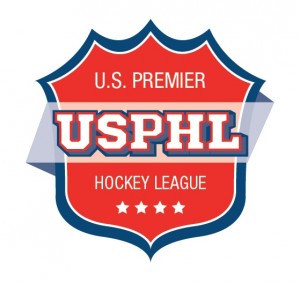AHU Coach’s Corner – Guest Column: Continuing the discussion on hockey parent etiquette
 This is Part 3 of 3 in a series by Jamie McKinven of GlassAndOut.com.
This is Part 3 of 3 in a series by Jamie McKinven of GlassAndOut.com.
7. It’s a Marathon, Not a Race
Most kids who play hockey dream of playing in the NHL. As a parent, it’s great to support your kids and do whatever you can to help guide them along the way. One thing that is important to remember is that the journey to the culmination of this dream is a marathon and not a race. If times get tough when your kid is 10, 11 or 12, it’s important to remember that it’s all about developing and getting better, and nothing is written in stone. There are so many stories of kids taking the long road to reach their dreams. Always keep that in mind, especially when the horizon looks cloudy.
8. Always Take a Step Back
As a parent, your first instinct is to protect and defend. If you feel your kid is being wronged or a situation is unfair, you want to lash out and hurt those who would dare bring harm to your kid. It’s natural instinct. That being said, it is important to always take a step back and put things into perspective. You need to understand that your actions will have consequences and those consequences affect you as well as your kid, and others.
In 2000, Thomas Junta (Google him, it’s a sad and tragic read) let his paternal emotions get the better of him during a situation at a minor hockey practice and spent eight years in prison for his actions. It all resulted from a typical situation that happens every day in hockey rinks across the world.
Recently, I was at a Pee Wee game watching a friend’s nephew play. Throughout the game, I heard every swear word in the book aimed towards players, coaches, other parents and referees. Some of the yellers were people I recognized from real estate and insurance ads in the paper. Do these people think I’m now going to buy a house or a policy from them? I wondered what these people would think if they were able to watch themselves on video.
9. Be Aware of the Signs
Not everyone who starts playing hockey is going to want to play hockey forever. Even kids who are the best players on their teams and play at the highest levels can develop other interests or lose interest in hockey altogether. There is nothing wrong with that. Kids often try different things throughout their childhood before they decide what truly interests them. To be more in tune with this, pay close attention to their body language and subtle cues because quite often, kids are too afraid to tell their parents that they don’t want to do something anymore out of fear of disappointment.
10. Educate Yourself
If your kid is serious about their dream of playing in the NHL and you want to shell out colossal amounts of money and provide moral support, educate yourself as much as you can about hockey and the different stages of development. Learn about what is important for development and what path is best. Soak in as much information as you can from as many sources as you can.
One of the biggest hindrances for kids and their families at crucial times in development is lack of knowledge. For example, I’ve seen dozens of kids in the past few years throw away their NCAA eligibility in order to play a handful of games of Major Junior hockey simply because they didn’t have enough knowledge. They think that the only path to the NHL is from AAA minor hockey to the OHL to the NHL. They simply haven’t educated themselves on the subject of hockey and the various levels and paths.
Jamie McKinven, author of “So You Want Your Kid to Play Pro Hockey?” and “Tales from the Bus Leagues,” is a former professional hockey player who played in the NCAA, ECHL, Central Hockey League and Europe. Along the way, he discovered a great deal about life, love and the value of following through on a dream.
(Jan. 14, 2019)









